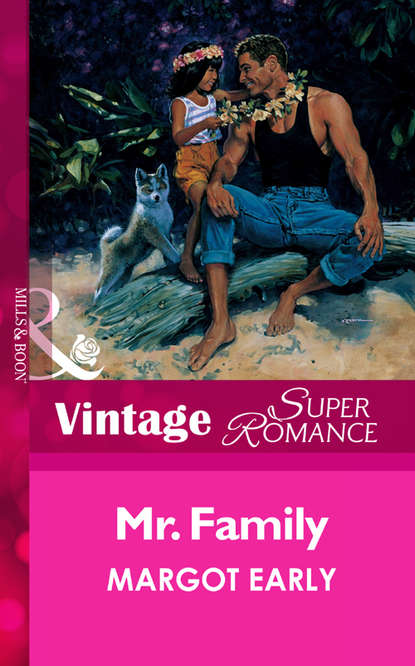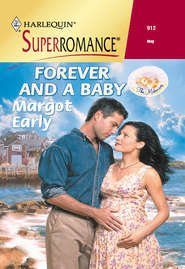По всем вопросам обращайтесь на: info@litportal.ru
(©) 2003-2024.
✖
Mr. Family
Автор
Год написания книги
2018
Настройки чтения
Размер шрифта
Высота строк
Поля
“We’re coming up on Princeville,” Kal said. “In a minute you can see Hanalei Bay.”
The terrain was changing again. The green hillocks inland had become mountains, rich forested green and draped in billowing shifting mist. Banyan trees grew alongside the road, their roots stretching twenty feet down the earthen embankment to the asphalt. Erika understood why Kauai was called the Garden Island. Everywhere, everything was verdant; plants with sprawling leaves caught the mist and the first raindrops.
A moment later a shower came in a clattering torrent. Through the rain streaming down the windshield, Erika caught her first glimpse of Hanalei Bay. A Zodiac motored across the water, and then the bay was obscured again by a tangle of foliage, trumpet vines, bottlebrush trees, amaryllis blossoms.
In another few minutes they reached Hanalei.
“That’s the gallery,” said Kal, identifying a white building with a wraparound porch.
Hanalei was not the tourist trap Erika had half expected. Despite its galleries and T-shirt shops, surf shops and boutiques, the community had an unpolished small-town atmosphere. Leaving the shopping area, they passed a soccer field set against the backdrop of mist-cloaked mountains. Beside the field was a green clapboard church with dramatic Gothic stained glass, a bell on the roof peak and a side tower with a pointed pagoda roof. In the doorway two women in identical holoku gowns and leis corralled some small children. Other people emerged, and Erika realized it was a wedding.
Somberly she looked away.
Kal was silent.
As they left Hanalei and continued driving west, the road narrowed. Vines and blooms overhung the road, which was broken by one-lane stone bridges. To Erika, it seemed a fairy-tale place—enchanted. They passed the sign for Haena, and soon Kal turned right, toward the ocean, on a gravel road. At its end, amid a jungle of flora—plants with pointed Cadmium Red leaves resembling lobster claws, trees with frilled and lacy hanging blossoms—stood a Private Property sign. Kal turned down the dirt drive.
A stand of mixed tropical trees to the left hid a tiny one-story green house. The dwelling would have blended in with its background if not for its white porch pillars and railing, a faded wind sock hanging from the roof of the lanai and a child’s bright plastic tricycle in the road. Erika recognized the bungalow from the photos Kal had sent.
But he didn’t stop there.
“Where are you going, Daddy?” asked Hiialo.
The Datsun continued down the gravel drive. “I thought Erika would like to see the beach.”
Separated from the bungalow by a forest of trees and shrubs was a vast lawn and a low slate blue house with an oriental roof. Palm trees shaded the beach. The calm summer sea was every shade of blue and green. It took Erika’s breath. When Kal parked beside the beachfront house and she got out, she could only stand and hold her arms about herself as the trade winds cooled her body.
“This house is a rental property owned by my parents,” said Kal, as Hiialo climbed between the seats and out his door. “It’s occupied off and on. When my aunt and uncle from the mainland visit, they stay here. I take care of the place.”
Erika stared at the sea. “I didn’t imagine you were this close to the ocean.”
No longer having to concentrate on driving, Kal studied her face. Prominent bones, smooth planes, a straight nose. He’d already noticed that with different expressions the whole arrangement of her features seemed to change—and that she had a way of looking at things with deep concentration, as though planning to paint them someday. Erika’s was not a boring face.
“Daddy, I want to go home.”
“Burnbye, Hiialo.” In a while.
“We can go,” said Erika. “I can walk back here anytime. This is just beautiful.” I want to stay…She spotted a boat covered by a canvas tarp, lying on some vines under what seemed to be a pine tree. “Is that yours?”
“That’s the outrigger,” said Hiialo. “It was my dad’s wedding present from my mom. She and Uncle Danny made it.”
Maka. “It must be a very special boat,” Erika said. Hiialo was sweet. This would be easy.
Kal moved toward the car. Erika would have preferred to walk to the bungalow, but they all climbed into the Datsun, instead, and he backed up the driveway, spun the wheel and reversed into a gravel space beside a wobbly green gardening shed.
He parked, switched off the ignition and stared straight ahead, out the windshield. Then he looked at Erika. “We’re here.” He lifted his eyebrows slightly, then turned away, reached for the door handle and got out.
He and Erika carried her belongings up to the lanai. Seeing Kal and Hiialo kick off their flip-flops beside the door, Erika bent down to remove her sandals. When she straightened, she saw a gentle smiling expression in Kal’s eyes. He held open the screen door. “E komo mai. Welcome.”
Stepping into the shadows, onto a warped hardwood floor covered with irregular remnants of gold-and-green carpet, Erika surveyed the small front room. The walls were cheap paneling. On the right side was the kitchen, on the left a couch, an old end table and a throw rug. Over the couch hung a framed print of a schooner, a Hawaiian chief in the bow. A hanging lamp with a plastic tiffany shade advertising Coca-Cola dangled above the coffee table, and two pieces of batiked cloth blocked a doorway opposite the porch.
Erika peered down a hall and spotted a threshold obscured by bamboo beads. At the hallway’s end was a real door, a solid door.
She glanced at the kitchen, the sink, the gas stove. Crayon drawings on the refrigerator. The baseboards looked streaky—perhaps hurriedly swept after a long dust buildup. For some reason, the sight touched her.
This place might become her home. Kal might become her husband—though not her lover—and Hiialo her child. It seemed hard to imagine, but she said sincerely, “I like this.”
Kal swallowed, relieved. Surprised. “Thanks.” He set down her duffel, garment bag and a blue suitcase she’d said contained art supplies and ankle weights. “Let me give you a tour.”
“I want to show you my room,” said Hiialo.
“Okay.”
Hiialo went to the batiked curtains and pushed them apart. Ducking between them, Erika found herself in a tiny chamber with a single koa captain’s bed. The wood was familiar; there had been a lot of koa on the Skye. Hiialo’s closet was built into one wall, and a window looked out on a yellow-blossomed tree beside the driveway.
The watercolor of Pincushion hung over the nightstand, in a plastic frame, no mat. The cheap frame affected Erika much as the hastily dusted baseboards had. “This is a wonderful room, Hiialo.”
Hiialo pointed to a turquoise-and-green ginger pattern quilt on her bed. “This is the quilt Tutu made for me. She gave it to me when I was born.” Her gaze drifted up to Kal, behind Erika in the doorway.
Turning, Erika caught him with a finger to his lips. He and Hiialo must have a secret.
Tutu. “Is that your grandmother?” Maka’s mother?
Hiialo nodded. “My tutu on Molokai. Not Grandma.” She sat on her bed and turned on a lamp with a friendlylooking dragon at its base. “Would you like to see my Barbie dolls? I have Cinderella, too.”
Kal tried to remember the last time Hiialo had shown an interest in dolls. The change seemed to confirm everything he’d suspected: a woman in the house could make all the difference.
But he said, “Let’s let Erika settle in first, Hiialo.” He stepped around the bed and opened the door to the remodeled porch. “This is your room.”
Erika followed him. The narrow room ran two-thirds the length of the house. Windows stretched along two sides, bamboo blinds rolled near the tops of the frames. The sashes were raised, bringing in heady floral scents, and by the window nearest the driveway, new track lights shone down on an art table.
When Erika saw, her eyes felt hot. He didn’t even know her, and he had done all this. He’d made a place for her to work.
What if I can’t sell another painting?
She had to. She’d lower her prices. She’d paint women by the sea again.
Then she remembered something else—the things she hadn’t told him. About her accident and her paralysis. It wasn’t his business, but the untold facts made her feel sneaky.
Kal flicked the light switch. “It’s hard to get natural light in this house. Too many trees. Tell me if you need more light for your work. The table’s an old one my folks had in their Poipu gallery.”
It was hard to get out the words. “Thank you.”
“You’re welcome.”
Erika crossed the koa floor to the captain’s bed. It was wider than Hiialo’s—full-size—and covered with a slightly faded yellow-and-red handmade quilt. The pattern was tropical, Hawaiian, with vines and blossoms radiating out from the center. Where had it come from?
“Do you like it?” burst out Hiialo. “My great-grandmother made it for my daddy for when he was born. And my daddy built your bed.”











